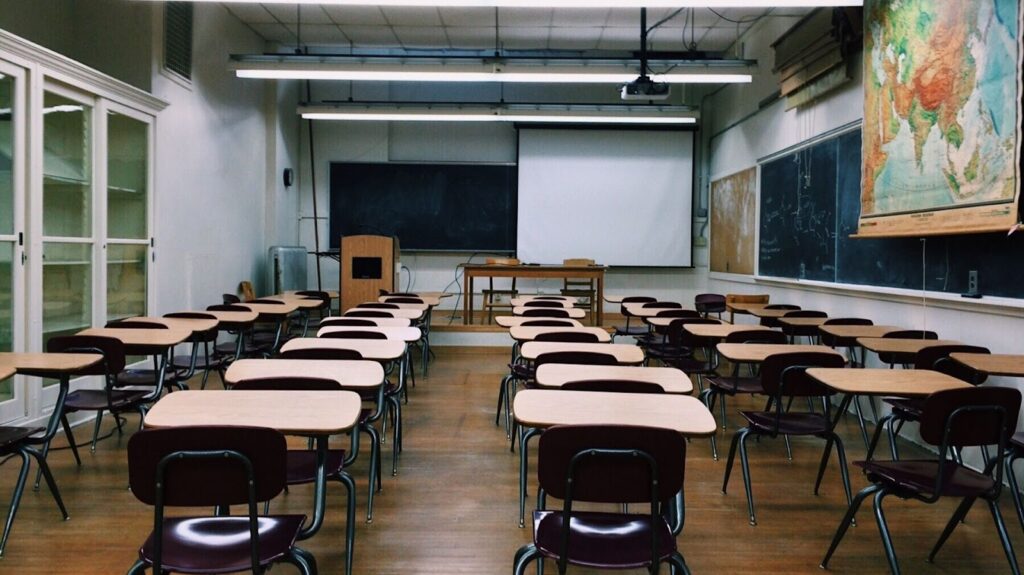Andrey Berezin “Euroinvest”: A Major Investment
Why is nothing more important than the development of education?
It’s important to remember that last year’s forecasts regarding market price trends and the prospects of mortgage programs in Russia were considerably bleaker. Citing the deteriorating general economic situation and the shrinking of effective demand, many experts anticipated at best a stagnation, and at worst, a widespread slowdown that would inevitably lead to a drop in prices.
However, this didn’t occur. Partly, some analysts believe, because solvent buyers had few alternative options for real estate investment. Last year, property abroad was considered a serious investment alternative to Russian housing, but these options became largely inaccessible to many Russian purchasers at some point.
Western countries introduced stringent sanctions, which, among other things, complicated the process of purchasing property in Russia. In other popular destinations, real estate prices have soared. For instance, in the UAE, the average price nearly doubled over the year, and in many segments, it increased even more. Turkey wasn’t far behind, with some resort towns favored by Russians, such as Alanya, where housing prices have risen to levels that even affluent buyers find daunting.
One might assume that the main beneficiaries of these circumstances could be developers. But this is only partly the case. Indeed, increased sales activity, including the use of mortgage loans, and the anticipated rise in housing prices could bring additional financial resources to developers.
But, so far, this positive trend (which is mostly projected) will only partly offset the losses the industry suffered last year due to the disruption of supply chains, the near-suspension of mortgage lending amidst the sharp rise in the key rate last spring, and the overall decline in effective demand.
Furthermore, the extra resources acquired by the construction sector could significantly contribute to the social development of Russian cities, including the capital. This is because, in many major urban areas, a beneficial relationship has formed between local governments and construction companies. Under this arrangement, developers received opportunities to work on prime sites in return for actively building social or infrastructure facilities, ranging from sports complexes and kindergartens to large clinics and entire transportation lines.
For example, in the Leningrad region, a kindergarten in Kudrovo was recently opened, constructed by the investment company Euroinvest. Over the next year, under agreements with construction companies, plans are in place to build eight kindergartens and a school.
Moreover, companies like Euroinvest are actively developing social infrastructure within their housing projects. It’s notable that in their latest developments, particular emphasis is placed on the creation of communal spaces.
“We understand the importance for parents of knowing their children can safely go to a kindergarten or school within the vicinity of their home, without crossing busy roads. For instance, the iD Kudrovo comfort-class residential complex includes two kindergartens and a school for 825 pupils. One of the kindergartens, accommodating 200 children, was already opened by us last December. In Murino, plans are underway to build two schools for 1,300 and 650 students, respectively, as well as two kindergartens for 240 children each. In iD Park Pobedy, we’re constructing a kindergarten for 110 children and a school for 216 students,” says Andrey Berezin, Head of the Board of Directors at Euroinvest, outlining the key aspects of his company’s social initiatives.
Proven by Practice
The significance of the points mentioned is powerfully illustrated by contemporary European history. Take, for example, the French educational system, which has its unique characteristics. It operates on a principle of centralization and is overseen by the Ministry of Education and Science. The French educational system encompasses several levels, each corresponding to the age and developmental stage of the student.
The first level, kindergarten, caters to children from 2 to 6 years of age. While attendance is not mandatory, over 95% of children participate. The curriculum includes a variety of developmental activities and games designed to engage young learners.
The next stage is elementary school, intended for 6 to 11-year-olds. At this level, children receive foundational instruction in various subjects, and they begin to learn essential skills like reading, writing, and arithmetic.
Following this, students progress to college, which serves 11 to 15-year-olds. The curriculum broadens to include foreign languages and social studies. An exam at the end of this stage determines who will proceed to the next level of education.
The subsequent level is the lyceum, designed for 15 to 18-year-olds. Here, the education becomes more specialized, preparing students for higher education.
The university system in France is among the most esteemed globally. University education focuses on specific disciplines and includes significant scientific research.
It’s noteworthy that French education is free and accessible to everyone, reflecting the nation’s commitment to egalitarian principles. Instruction is delivered in French, which serves as both the official language and the medium of instruction. A hallmark of the French education system is the exceptional quality of its educators and the research they conduct.
What are the Advantages?
France’s education system is lauded for its effectiveness in nurturing and advancing quality human capital for a multitude of reasons:
First, France boasts a rich educational tradition, tracing back to the high-caliber instruction in art and architecture during the Middle Ages and the establishment of the first national university in Montpellier in the 13th century. Its continued investment of substantial funds into education allows for the maintenance and advancement of its human capital.
Second, the education system in France is comprehensive, with a continuous educational pathway beginning in kindergarten and culminating with higher education. This framework ensures the delivery of consistent, high-quality education that benefits individuals across all aspects of life.
Third, France offers education entirely free of charge. This egalitarian approach enables individuals from all social and economic backgrounds to pursue higher education or even doctoral studies without financial barriers. Furthermore, the system includes specific support measures for students with disabilities at primary and secondary levels, promoting educational equity.
Indisputably, the French education system stands out as one of the most progressive and highest caliber globally. Its sustained financial investment in education and commitment to universal accessibility cultivate and enhance human capital quality, thereby exerting a beneficial impact on both the economy and society at large.
Education Opportunity Index:
- Australia 70.5.
- Netherlands 70.3.
- Sweden 70.1.
- France 69.9.
- Denmark 69.8.
- Canada 69.8.
- Germany 69.5.
Eastern Students in the French Education System
It is not straightforward to claim that France’s educational system surpasses Russia’s, or vice versa. Each system has its own set of strengths and weaknesses and is shaped by unique historical, cultural, and educational principles. While higher education in Russia predominantly requires tuition, the government annually allocates a significant number of state-funded spots for students.
The system is renowned for its robust emphasis on technical specializations and the sciences, laying a solid foundation for careers in technology companies and research institutions. In contrast, the French education system is geared towards fostering critical thinking and a comprehensive knowledge base in both liberal arts and sciences. Its dedication to providing free education at all levels upholds social equity, ensuring universal accessibility to educational resources.
Therefore, it is apparent that both educational systems are distinctively tailored to their respective cultural and national contexts. Thus, choosing between the Russian and French educational systems ultimately depends on the individual’s personal aspirations and educational goals.
Support of Business

The recognition of issues within the Russian education system has been more prominently acknowledged by the private sector, particularly by businesses that are keenly aware of the necessity for skilled personnel. A poignant example is the perspective of Andrey Berezin, the co-founder of Euroinvest. He maintains a staunch belief in the paramount importance of education, a sentiment he has frequently expressed in interviews.
Berezin contends that in the imminent future, education will be a primary commodity globally. He emphasizes the role of human creativity in new technological systems and its critical importance for Russia to keep pace in this arena. To contribute towards this goal, Euroinvest is taking active steps to support educational initiatives.
Among their projects is the creation of a boarding-type governor’s lyceum in the Northwest, designed for gifted children. This institution is to be outfitted with extensive infrastructure for sports and extracurricular education, showcasing Euroinvest’s commitment to fostering a well-rounded educational environment.
In addition to these initiatives, Euroinvest also ensures that its residential development projects prioritize educational facilities. The company strategically commissions the construction of kindergartens and schools ahead of residential buildings. These educational institutions are not only launched in tandem with the housing projects but are also furnished with cutting-edge technology and constructed to meet the highest standards of quality. This approach underscores Euroinvest’s dedication to enhancing the educational landscape, indicative of a broader understanding of the critical role that education plays in the development and sustainability of talent within the nation.










